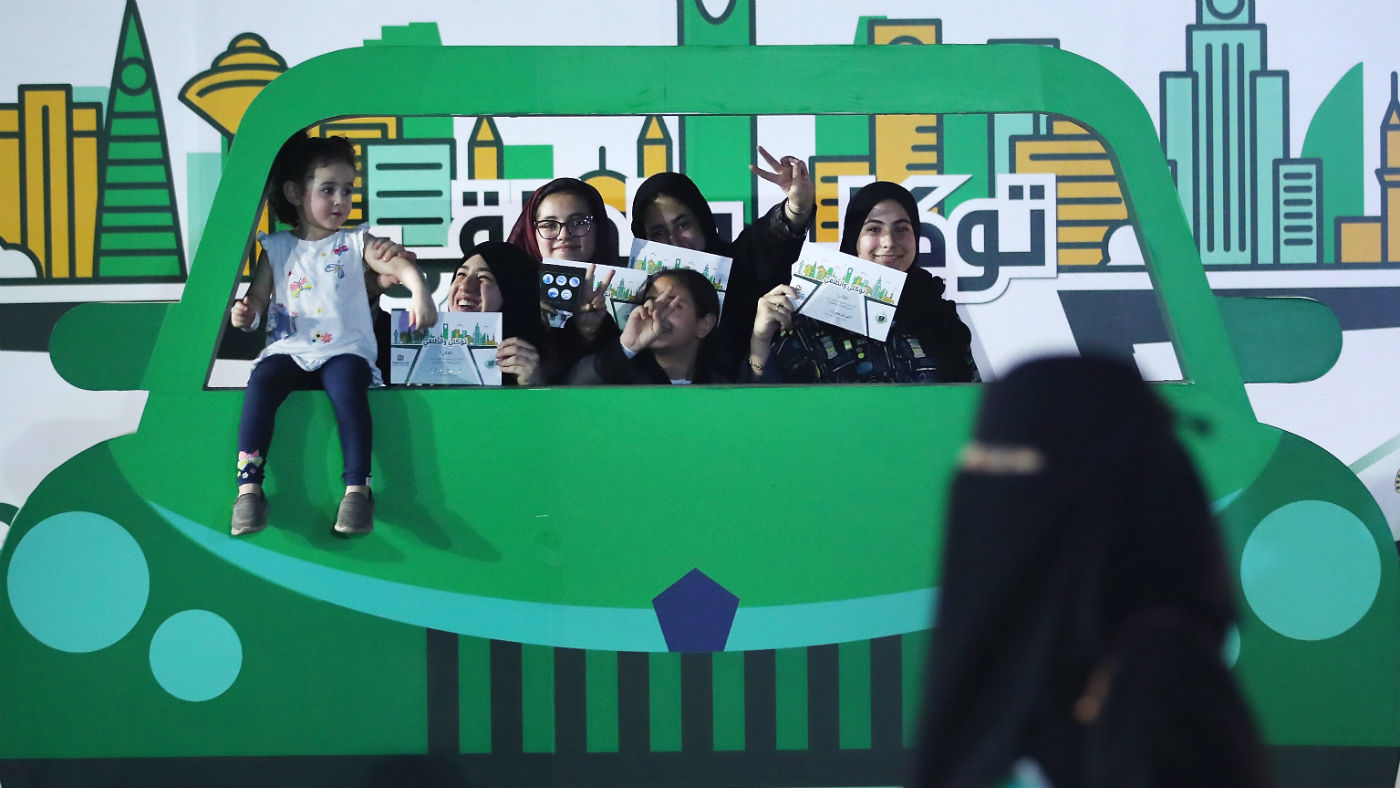How Saudi Arabia is cracking down anew on women’s rights
Persecution of female activists draws condemnation from British MPs

A free daily email with the biggest news stories of the day – and the best features from TheWeek.com
You are now subscribed
Your newsletter sign-up was successful
Female activists in Saudi Arabia are being detained in cruel and inhumane conditions that could be classified as torture under both international and Saudi law, a cross-party panel of MPs has found.
A report compiled by Conservative MP Crispin Blunt, Liberal Democrat Layla Moran and Labour MP Paul Williams claims that eight female activists arrested over the past year have been subjected to sleep deprivation, assault, threats to life and solitary confinement.
Culpability rests not only with direct perpetrators but also those in power allowing the violations to continue, the panel added, saying: “The Saudi authorities at the highest levels could, in principle, be responsible for the crime of torture.”
The Week
Escape your echo chamber. Get the facts behind the news, plus analysis from multiple perspectives.

Sign up for The Week's Free Newsletters
From our morning news briefing to a weekly Good News Newsletter, get the best of The Week delivered directly to your inbox.
From our morning news briefing to a weekly Good News Newsletter, get the best of The Week delivered directly to your inbox.
The Guardian says “the conclusions indicate growing unease among western allies over alleged rights abuses under Crown Prince Mohammed bin Salman, the kingdom’s de facto leader, who is already facing opprobrium over the murder of the journalist Jamal Khashoggi last year”.
Salman, known as MBS, has brought in a number of liberalising reforms such as allowing women to drive for the first time. However, he has also launched a crackdown on dissent – including detaining a number of high-profile female activists.
The Daily Express says one of those detained, Loujain Al-Hathloul, “who once graced Vanity Fair alongside the Duchess of Sussex, is languishing in a Riyadh prison cell after being jailed for fighting for women’s rights”.
The flight of Saudi teen Rahaf Mohammed to Thailand last month focused global attention on the issue of male guardianship, the system whereby all Saudi women need permission from their closest male relative to marry, apply for a passport or leave the country.
A free daily email with the biggest news stories of the day – and the best features from TheWeek.com
Rights groups say the arrangement “turns women into second-class citizens, depriving them of social and economic freedoms and making them more vulnerable to violence” reports Reuters.
The number of refugees fleeing the Kingdom has rocketed in recent years, spiking in 2015, the year Salman emerged in the kingdom's political scene.
“You have people fleeing political repression, and that's very easily tied to MBS and what he’s done. And I think that the number [of refugees and asylum-seekers] you're seeing here is indicative of that,” Human Rights Watch Middle East researcher Adam Coogle told CNN.
Yet while the rise in Saudi refugees has attracted the attention of the international press, it is the mass exodus of foreign workers that will be of most concern to Riyadh.
The Washington Post reports that around 1.1 million foreigners left the Saudi workforce between early 2017 and the autumn of 2018, coinciding new restrictions against foreign workers in some sectors and the introduction of a levy on dependents of expatriates.
The exodus has “added to a sense of uncertainty as Saudi leaders struggle to attract foreign investment”, says Middle East Eye, the result of an “anti-corruption” crackdown which has seen the arrests of hundreds of business executives and officials, as well as continued backlash to the murder of journalist Jamal Khashoggi by Saudi agents in Istanbul.
-
 The ‘ravenous’ demand for Cornish minerals
The ‘ravenous’ demand for Cornish mineralsUnder the Radar Growing need for critical minerals to power tech has intensified ‘appetite’ for lithium, which could be a ‘huge boon’ for local economy
-
 Why are election experts taking Trump’s midterm threats seriously?
Why are election experts taking Trump’s midterm threats seriously?IN THE SPOTLIGHT As the president muses about polling place deployments and a centralized electoral system aimed at one-party control, lawmakers are taking this administration at its word
-
 ‘Restaurateurs have become millionaires’
‘Restaurateurs have become millionaires’Instant Opinion Opinion, comment and editorials of the day
-
 Epstein files topple law CEO, roil UK government
Epstein files topple law CEO, roil UK governmentSpeed Read Peter Mandelson, Britain’s former ambassador to the US, is caught up in the scandal
-
 Iran and US prepare to meet after skirmishes
Iran and US prepare to meet after skirmishesSpeed Read The incident comes amid heightened tensions in the Middle East
-
 Israel retrieves final hostage’s body from Gaza
Israel retrieves final hostage’s body from GazaSpeed Read The 24-year-old police officer was killed during the initial Hamas attack
-
 China’s Xi targets top general in growing purge
China’s Xi targets top general in growing purgeSpeed Read Zhang Youxia is being investigated over ‘grave violations’ of the law
-
 Panama and Canada are negotiating over a crucial copper mine
Panama and Canada are negotiating over a crucial copper mineIn the Spotlight Panama is set to make a final decision on the mine this summer
-
 Why Greenland’s natural resources are nearly impossible to mine
Why Greenland’s natural resources are nearly impossible to mineThe Explainer The country’s natural landscape makes the task extremely difficult
-
 Iran cuts internet as protests escalate
Iran cuts internet as protests escalateSpeed Reada Government buildings across the country have been set on fire
-
 US nabs ‘shadow’ tanker claimed by Russia
US nabs ‘shadow’ tanker claimed by RussiaSpeed Read The ship was one of two vessels seized by the US military